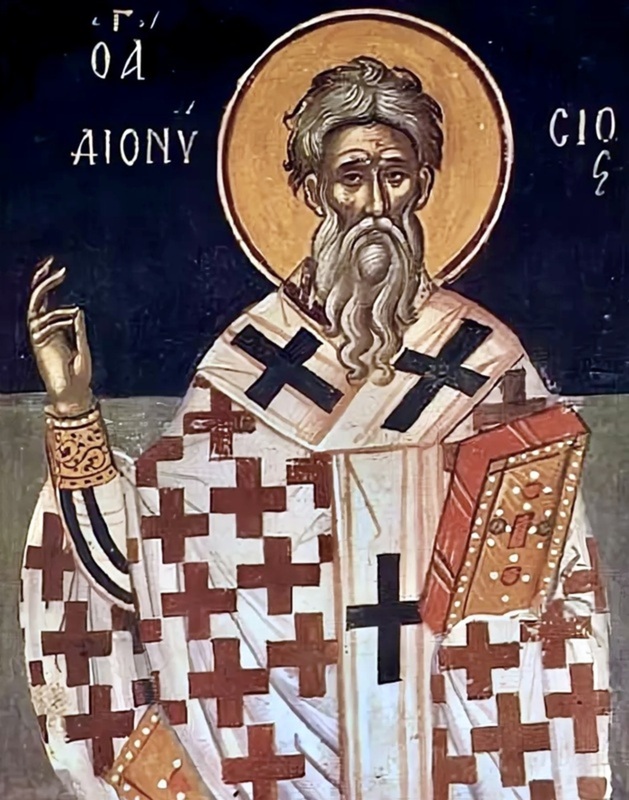Commemoration day: October 5 (18)
Biography
He was born around 190, the son of wealthy pagans, and received a good education. After becoming a Christian, he became a disciple of Origen and was soon ordained a presbyter. From 231, he was a teacher at the Alexandrian Catechetical School for 16 years, and from 247, after the death of Bishop Heraclas, he became the Bishop of Alexandria. For his struggle against Sabellius and Paul of Samosata, he was called "the Great" and a teacher of the Universal Church (so named already by Eusebius and St. Basil the Great).
During the persecutions of Decius, St. Dionysius was arrested and unexpectedly released. For some time, he led the Church of Alexandria from hiding, then returned to the city.
During the persecution of Valerian, he was exiled to Libya.
Participation in many church events of that time:
On the question of baptizing heretics, he was closer to the views of Rome, but used all his influence to call Rome and Carthage to moderation. (Rome recognized it as valid, Carthage and Caesarea denied it). See:
"In the assembly of the brethren was a certain man, considered a long-time orthodox... he came to me with weeping and self-reproach, and, falling at my feet, began to confess and swear that the baptism he had received from the heretics was not such and has nothing in common with ours, because it is full of impiety and blasphemies... he asked me to grant him the truest purification, adoption, and grace. But I did not dare to do this..." Eusebius, Church History VII, 9
On the question of receiving the lapsed, he disapproved of excessive strictness: "to give absolution to the dying, if they ask for it, and especially if they had asked for it earlier, so that they may depart from this life with good hope."
In an epistle, he persuaded Novatian in Rome to renounce his unlawfully received ordination and not to cause a schism.
Dionysius corresponded with Dionysius, Bishop of Rome, concerning the heresy of modalism or Sabellianism, which had spread at that time in Africa.
Being a proponent of the allegorical method of interpreting the Bible, Dionysius argued against the chiliasts (including Bishop Nepos), who insisted on a literal interpretation of the "thousand-year reign of Christ" at the end of the ages.
According to tradition: When a plague appeared in Alexandria, the saint called his flock to care equally for sick Christians and pagans and to bury the dead.

